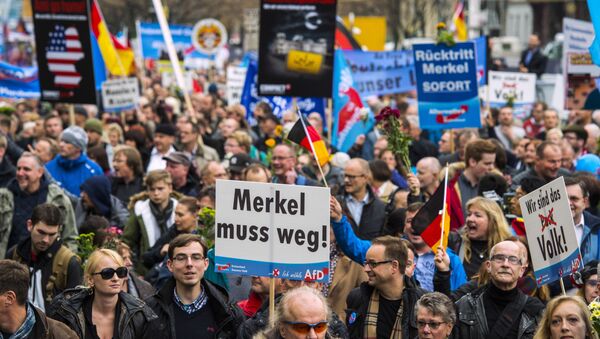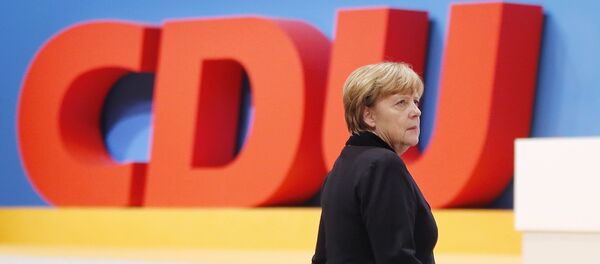For his turn, political expert Alexander Kamkin said in an interview with Sputnik that the migration crisis has become the last straw for the Europeans.
Kamkin argued that the growth of right-wing sentiments in Europe started many years ago, but the recent refugee crisis "was just too much."
"The migration crisis has been the last straw, but the growth of right-wing sentiments could have been observed before that. These sentiments cover a very wide spectrum, including fears of excessive migration flows, and attempts to preserve some national traditions," Kamkin told Sputnik.
According to him, right-wing movements can be divided into moderate and radical ones. Both of them are often mixed up, which leads to a certain confusion.
"Neo-Nazis, various political outsiders and other political groups are lumped all together. And this leads to certain confusion. When people talk about the growth of ultra-right sentiments, and mean, for example, Alternative for Germany, this is incorrect," the expert said.
The survey conducted by TNS Global for Sputnik news agency showed more than four out of every 10 Germans (43 percent) say that one of the main reasons we have seen a growth in the popularity of right-wing parties in Europe is that the electorate feel there have been empty promises that have not been fulfilled.
The same opinion is shared by 33 precent of respondents in Great Britain and 40 percent of those surveyed in France.



